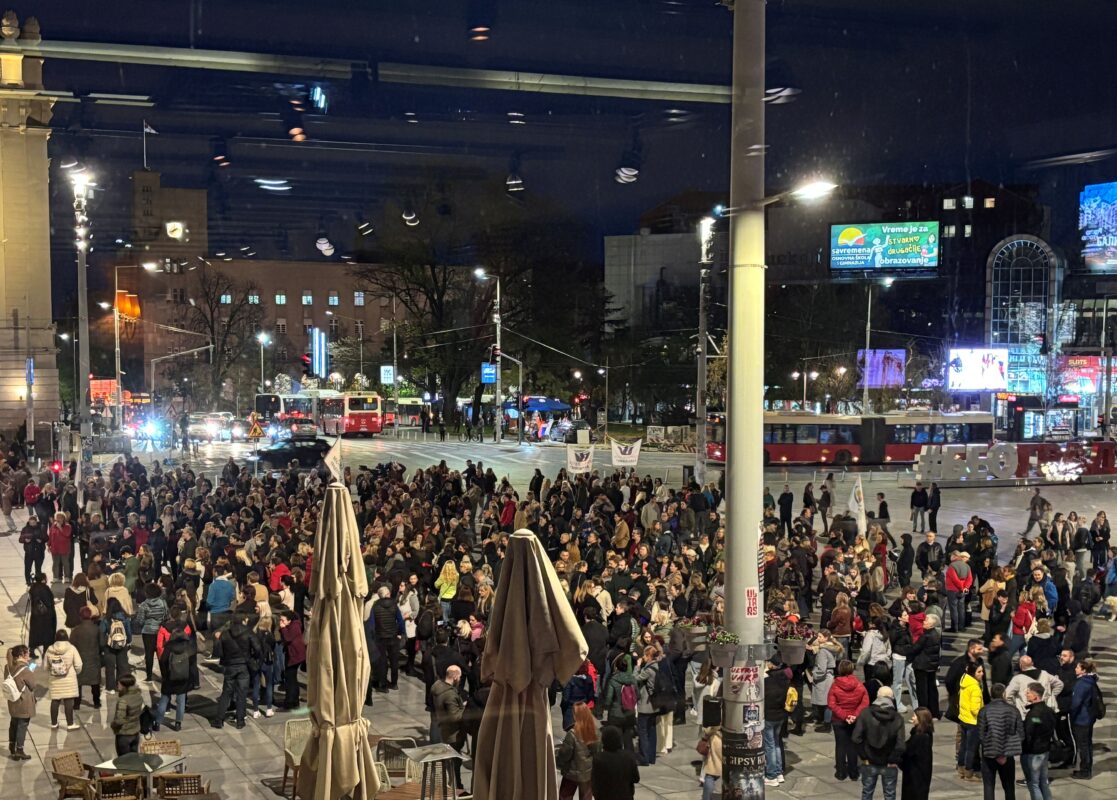Radiance beyond the region
Since 2016, the festival for the composer Othmar Schoeck in Brunnen has been surprising visitors with music, theater, exhibitions, lectures and podiums.
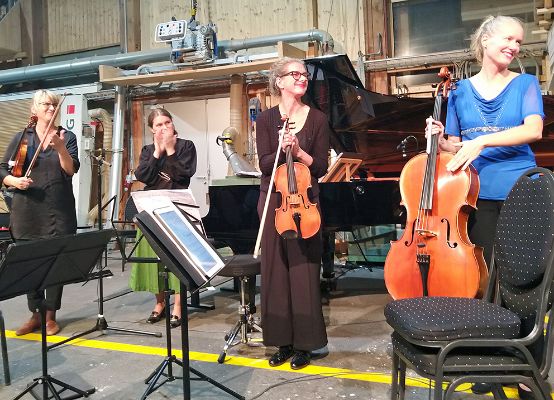
It was launched in 2016 and is now known far beyond the region. The "Othmar Schoeck Festival"which takes place high above Brunnen, in a unique location in a villa overlooking Lake Lucerne, is dedicated on the one hand to the music of the composer born here, and on the other to his birthplace and its future potential as an actual cultural center.
The house is alive and is history. The villa was built by Schoeck's father Alfred (1841-1931) and served as the painter's studio. From the terraced garden you can see over the lake, the Rütli, the Treib and the Uri Alps. Both the villa and the garden invite you to reflect, philosophize, make music or discuss.
-
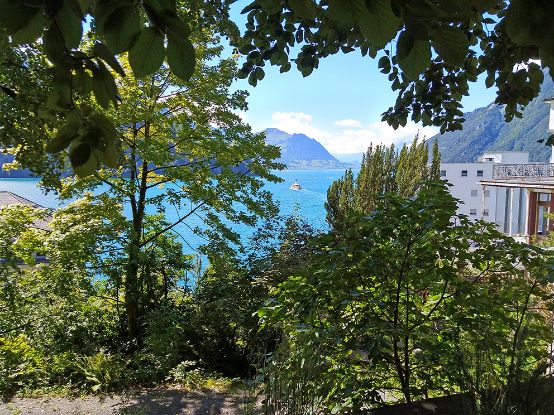
View of the lake from the garden of the Schoeck Villa. Photo: SMZ
The Schoeck Festival is special and stands out from similar cultural events. What is on offer in the house may only seem elitist at first glance. Alvaro Schoeckhimself an opera director and the composer's great-nephew - together with musicologist Chris Walton he is the artistic director of the event - always provides new surprises. These remain in the minds of visitors for a long time, and those who have not been there always hear that they have missed something. The events at the Schoeck Villa are also a talking point in the village restaurants in the valley basin. The famous composer has been brought back from the past, wrote the Neue Luzerner Zeitung And rightly so in 2016. And the district of Schwyz, which is not known for its financial generosity, honored the first Schoeck Festival with a recognition award, which is rarely given. Sandro Patierno, then district mayor and now a member of the cantonal government, praised the festival's important connection and great regional significance.
Experimentation and a down-to-earth approach
The combination of surprising events, such as those presented in 2016 by the Hauen-und-Stechen-Musiktheaterkollektiv from Berlin, which was recently nominated for the "Faust", Germany's biggest theater prize, podiums on the reception of Schoeck's music or on the Villa's worthiness of protection with outstanding concerts is attracting an ever-growing regular audience. There is also a critical examination of the composer's biography: This year's festival was launched with a discussion on the subject of "Art and Politics in the 20th Century".
Taking the controversy surrounding the Bührle Collection in Zurich as a starting point, the Musicologist Inga Mai Grootethe Historian and author Erich Keller and the online New Yorker Music journalist Alex Ross also about the past of Othmar Schoeck, whose career ultimately suffered more than it gained because of his connections to Germany. Since the premiere of his last opera Dürande Castle In Berlin in 1943, he was accused of being too close to Nazi Germany at the time. It is only recently that the subject and his work have been discussed more openly again. Not least thanks to Schoeck's descendants, who do not resist research, but actually encourage it with great openness.
The panel agreed that Schoeck, like many cultural figures, had benefited from National Socialism, but: "Schoeck was not a National Socialist," Erich Keller put it in a nutshell. No neo-Nazi would ever refer to Schoeck. Finding out more about the professional networks of the time and the reception of composers outside the "avant-garde" also remains an interesting task.
-
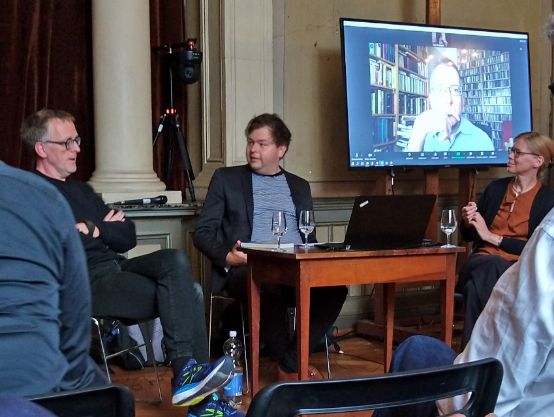
From left: Erich Keller, Kaspar Surber (moderator), Alex Ross (joined online), Inga Mai Groote. "Schoeck was not a National Socialist," Erich Keller put it in a nutshell. Photo: SMZ The organizers' desire to experiment and the willingness of the invited artists to get involved is what makes the festival so charming. Added to this is the clever integration of local associations and performance venues - from hotel halls to parish churches. From brass bands to the Urschweizer chamber ensemble, people are on board, ensuring that the events are down-to-earth and attract the right audience. The fact that the local bookshop is represented at the festival with a book table and has already dedicated its shop window entirely to "Schoeck" in the run-up to the festival once again impressively demonstrates that the Brunner Festival has made a name for itself in the region and found a place in the cultural autumn.
World premiere and promotion of young talent
This year's festival, which took place at the beginning of September, was no exception. With the Mondrian ensemble a world-class formation performed. The four women - Ivana Pristašová, Tamriko Kordzaia, Petra Ackermann and Karolina Öhman - embarked on the experiment, and instead of filling halls in Klagenfurt, Zurich or Vienna, they traveled to the provinces, where they performed with great enthusiasm and joy in the workshop of a local timber construction company. They even premiered a composition by the 22-year-old Felix Nussbaumer found a place next to works by Dieter Ammann and was cheered by the fascinated audience.
-
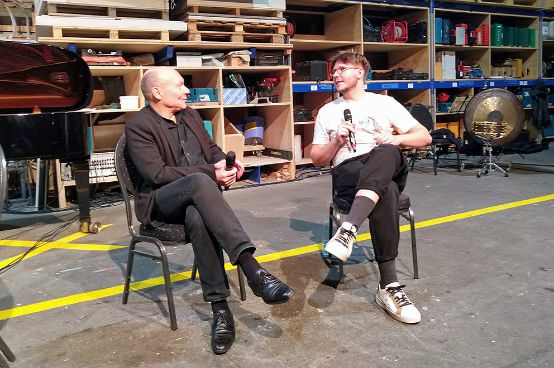
Dieter Ammann and Felix Nussbaumer talk about the commissioned work. The Mondrian Ensemble performed Felix Nussbaumer's work "between regions of partial shadow and complete illumination" for piano quartet twice in a row. Photo: SMZ
Promoting young talent is an important concern of the festival. It has therefore long maintained a partnership with the Lucerne University of Applied Sciences and Arts - Music. This year, an ensemble of advanced students worked on Othmar Schoeck's rarely performed song cycle Gaselen op. 38 under the direction of Stefan Wirth accompanied the soloist Balduin Schneeberger, baritone, and created a fitting counterpoint to the works of Ammann and Nussbaumer.
The Schoeck Villa as an event venue
The presentations by Günther Heeg and Anna Ricke treated Massimilla Doni in the arrangement by Schoeck and Armin Rüeger. The two agreed that the work is highly effective for the stage and should definitely be performed again.
-
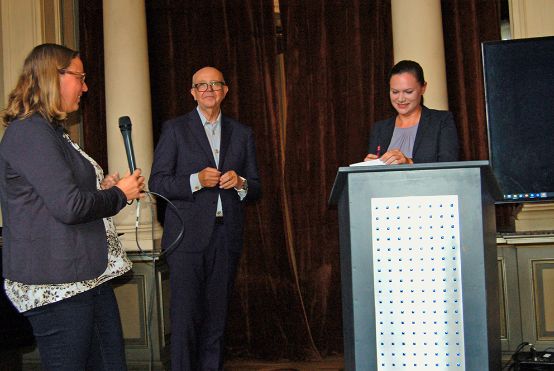
From left: Merle Fahrholz, Günther Heeg, Anna Ricke. The experts agree: Schoeck's opera "Massimilla Doni" should be performed again. Photo: SMZ In addition to a joint project with the Historical Museum Bischofszell The lovingly designed exhibition on the friendship between Othmar Schoeck and his librettist Rüeger, who was a full-time pharmacist in Bischofszell, will also feature the Lutz Grossmann performed with his ensemble Oh you fool! resonate for a long time. Based on artefacts in the Schoeck studio, the troupe used play and music from Schoeck/Rüeger's Don Ranudo to think about holding on to things and thought patterns.
-
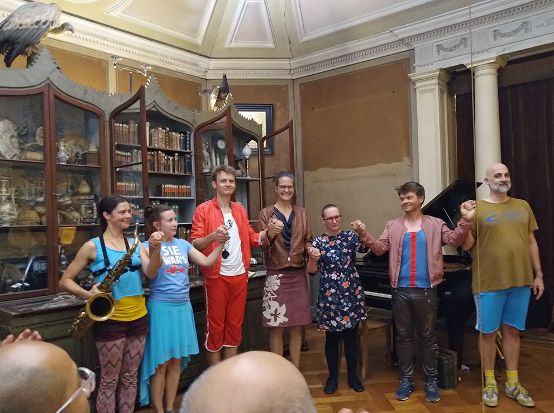
From left: Annina Mosimann (play), Nadja Tseluykina (musical director), Lutz Grossmann (director/play), Nicola Minssen (set), Sarah Mehlfeld (co-director, dramaturgy), Evgeni Lukyanchyk (saxophone), Eric Förster (baritone). The ensemble at the final applause after the performance "Oh Du Narr!" in the Künstleratelier of the Schoeck-Villa. Photo: SMZ
The Schoeck Festival has established itself and offers space for other cultural events. Pedro Lenzthe well-known writer, who recently gave a reading at Villa Schoeck, which is only temporarily occupied by the heirs, is full of praise. "I was very impressed by the villa itself, which is practically as it was in the early days. But what impressed me even more was the love and passion with which Alvaro Schoeck and his siblings are committed to the house and the family's cultural heritage. They do it with heart and hospitality, without any conceit, without any desire for recognition, but with the fire of those who really care about the cause. Chapeau!"
-
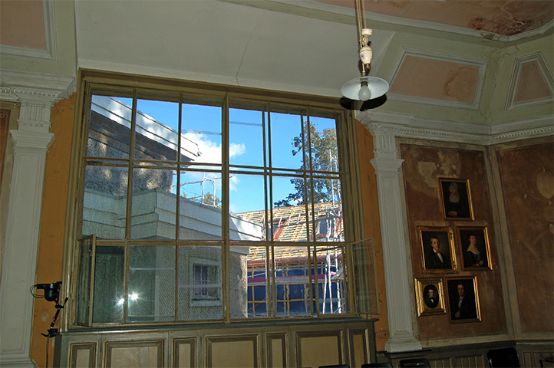
View from the window of the artist's studio. The Schoeck Villa offers space for various cultural events. Photo: SMZ - ____________________________________________
Transparency note: The Swiss Music Newspaper is a media partner of the festival. The historian and journalist Jürg Auf der Maur is editor at Bote der Urschweiz.






